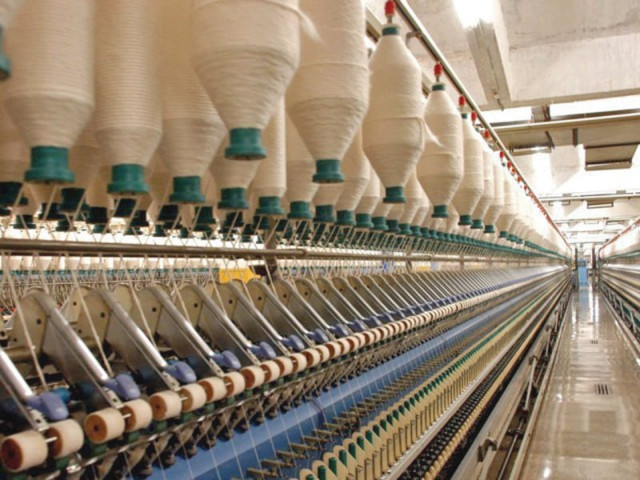APTMA laments energy situation again
Cites issues plaguing textile industry.

Energy crisis remains to be the bane of the industry and it had previously brought 50% of the textile mills to a halt. PHOTO: FILE
Energy crisis remains to be the bane of the industry and it had previously brought 50% of the textile mills to a halt. There are around 300 textile mills in Punjab and these are generating direct and indirect employment for around 15 million people.
“Currently, 45 mills have been closed and the rest have cut down a shift due to the increasing energy crisis,” said All Pakistan Textile Mills Association (Aptma) Punjab Chapter Chairman SM Tanveer.
The textile industry, in general, still has hopes over the resolution of this pressing issue which is the main hurdle in achieving the targets of post GSP Plus status. The Aptma management hopes to double exports to $26 billion in the next five years.
The industry has achieved a growth of 15% from January primarily due to access to European markets and a reasonable schedule of provision of gas in the winter. The industry observed total shut down for some days in the previous winter, when no gas and electricity was available. This year, they were provided with 25% of the required amount which accounts for 8 hours of gas per day.
From April 1, the government decided to provide gas to Punjab’s Compressed Natural Gas sector for 6 hours during the six days of the week hours, while on Sunday it would run for a total of 18 hours. The gas is provided simultaneously to all zones which results in lower pressure for textile industry and many millers are unhappy with this practice.
“Whenever we raise an issue we also provide a solution. Currently we are incurring an annual loss of Rs80 billion on account of the energy crisis,” Tanveer added. “We have also incurred a loss of Rs78 billion due to the rupee appreciation.”
The Punjab government, however, has formed a committee to address the issues of textile millers.
Published in The Express Tribune, April 18th, 2014.
Like Business on Facebook, follow @TribuneBiz on Twitter to stay informed and join in the conversation.



















COMMENTS
Comments are moderated and generally will be posted if they are on-topic and not abusive.
For more information, please see our Comments FAQ